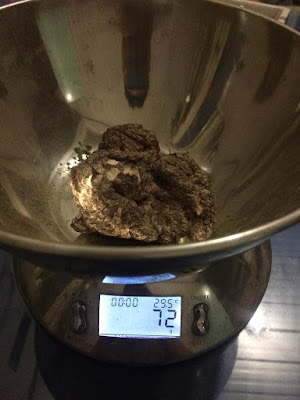Tiger Milk Mushroom For Herb Medicine
Product Details
Lignosus rhinocerus, commonly known as tiger milk mushroom, belongs to family Polyporaceae in the division Basidiomycota. Tiger milk mushroom is regarded as a medicinal mushroom with the ability to treat numerous ailments, by Wikipedia.
A 2018 review of the testing of investigations into Lignosus rhinocerotis concluded that "there is a paucity of validation studies including human clinical trials of the mycochemicals of L. rhinocerotis."
Traditionally, the Tiger milk mushrooms have been used for more than 400 years as a health tonic by the aborigines or native for its healing properties on more than 15 types of medical ailments, including; treatment of lung and respiratory diseases (including asthma, cough), fever, vomit, breast cancer, chronic hepatitis, gastric ulcer, food poisoning. It's also believed to help with wound healing and indigestion. Aborigines also boil it with Tongkat ali and used it as general tonic to strengthen the body.
Medicinal properties
Tiger milk mushrooms have received much interest in recent years, owing to its wide-ranging enthobotanical uses, and the success in domestication of the mushroom. Several studies have been initiated to examine its safety and biopharmacological efficacy in order to validate its enthobotanical claims. Research findings have revealed that tiger milk mushroom sclerotia to contain various biologically active substances, such as polysaccharides, polysaccharides-protein complexes, and β-glucan, which demonstrate anti-inflammatory, antioxidant, anti-proliferative and immuno-modulating effects.
Safety assessment:
Tiger milk mushrooms have been used for several hundred years, with no known toxicity or side effects. In accordance with OECD guidelines, various stringent toxicity studies have been conducted, and the mushroom's safety has been scientifically assessed. Preclinical toxicological evaluation of the cultivated sclerotium of Lignosus rhinoceros tested on rats have shown the treatment did not establish any pathological changes in the liver, kidney, heart, spleen, and lung and also had no adverse effect on the fertility of the subject nor induce tetratogenic effect on their offspring, by Wikipedia sources.




